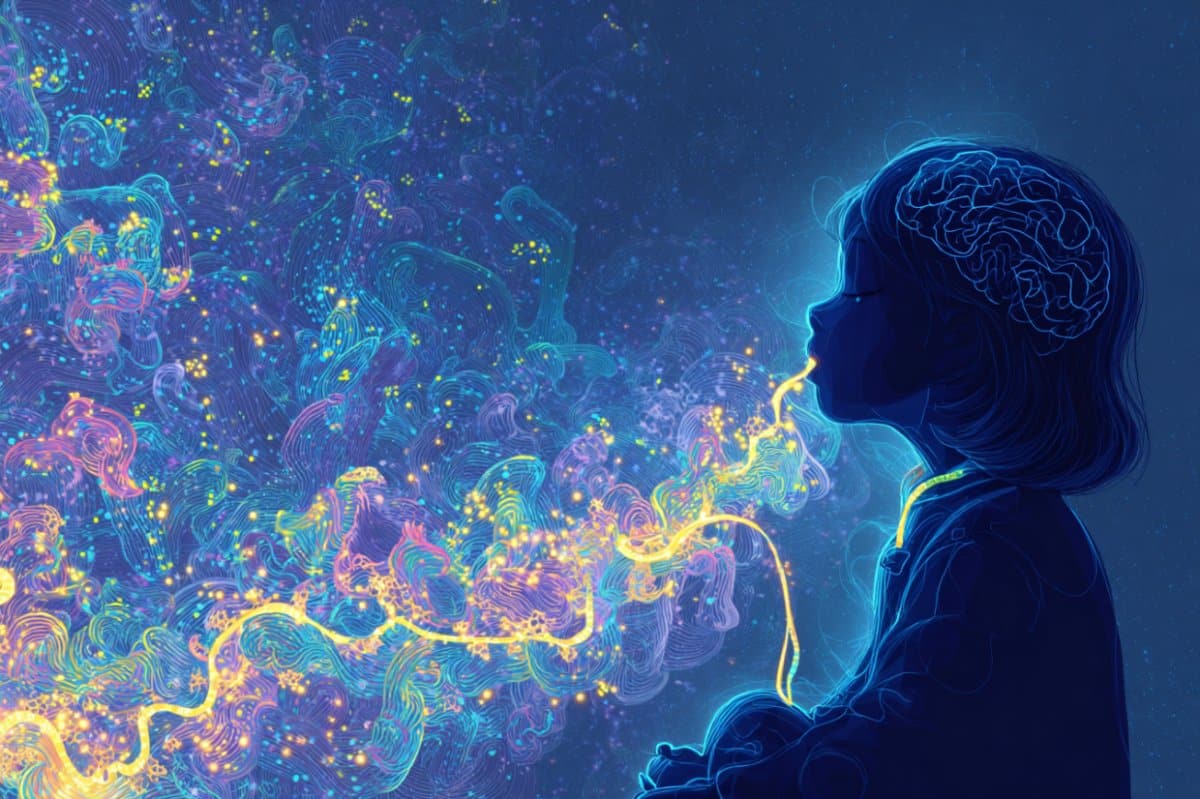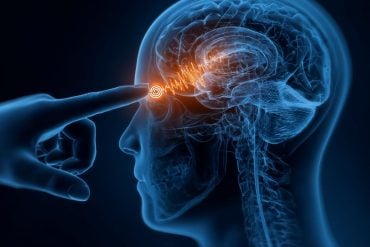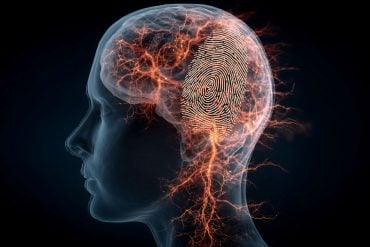Summary: A new study suggests that a child’s gut microbiome at age 2 may influence their emotional health years later. Researchers found that higher levels of bacteria from the Clostridiales order and Lachnospiraceae family were linked to stronger connectivity across emotion-related brain networks and a higher risk of anxiety and depression symptoms by age 7½.
This connection indicates that early gut bacteria may help program brain circuits involved in emotional regulation. The findings highlight the gut-brain axis as a potential target for early mental health interventions through diet or probiotics.
Key Facts
- Gut-Brain Connection: Early gut microbes appear to shape brain networks tied to emotion and mood.
- Predictive Patterns: Toddlers with more Clostridiales and Lachnospiraceae bacteria showed higher risk for anxiety and depression later.
- Therapeutic Potential: Adjusting gut bacteria early through probiotics or diet may reduce later mental health risks.
Source: UCLA
A child’s early gut microbiome may influence their risk of developing depression, anxiety or other internalizing symptoms in middle childhood, according to a new UCLA Health study. The effect appears to be related to the way bacteria are linked to communication across emotion-related brain networks.
Published in the journal Nature Communications, the observational study found that young children whose gut microbiome had higher representation of bacteria in the Clostridiales order and Lachnospiraceae family were at higher risk of experiencing internalizing symptoms — an umbrella term that includes symptoms of depression and anxiety — in middle childhood.
The connection appeared to work indirectly: the early microbiome composition was associated with differences in connectivity across different emotion-related brain networks that was linked to anxiety and depression later in childhood.
The findings suggest that early gut bacteria could play a role in programming brain circuits tied to emotional health in later childhood. If unaddressed, symptoms of depression and anxiety can carry a higher risk of mental health challenges persisting as children develop into adolescence and adulthood, said study senior author Dr. Bridget Callaghan at UCLA.
“By linking early-life microbiome patterns with brain connectivity and later symptoms of anxiety and depression, our study provides early evidence that gut microbes could help shape mental health during the critical school-age years,” said Callaghan, associate professor of Psychology and Bernice Wenzel and Wendell Jeffrey Term Endowed Chair in Developmental Psychology at UCLA.
Previous research into the gut-brain axis in children has mostly focused on infants and toddlers rather than school-aged children. These studies typically examined how microbial composition may relate to early brain development involved in movement, language, and learning rather than mental health.
Callaghan and her team sought to determine whether the makeup of a young child’s gut microbiome could have a cascading effect on mental health outcomes in later childhood, when issues such as depression and anxiety first appear.
The study is based on data collected from the Growing Up in Singapore Towards Healthy Outcomes, or GUSTO, study. The longitudinal birth cohort study collected various health data from children in Singapore including stool samples at age 2 years, resting state MRI brain scans at age 6 years, and survey data from caregivers about the children’s behavioral problems at age 7 ½ years. The UCLA Health study utilized data from 55 of the participants in the GUSTO study.
The UCLA study conducted a statistical analysis on the data to identify combinations of brain connectivity patterns at age 6 years that were most strongly associated with internalizing symptoms reported at age 7 ½ years. Researchers then examined how early gut microbial profiles at age 2 years were linked to those brain patterns.
The association between internalizing symptoms and bugs within Clostridiales and Lachnospiraceae microbe populations paralleled similar research into the microbiome and adult mental health.
Callaghan said these two microbe groups have been linked to stress response and depression in adults as well as to effects of early childhood adversity.
Some microbes in these populations may potentially be more sensitive to stressors, which could explain their association with the development of internalizing symptoms in later childhood.
Callaghan said future experimental research will reveal whether these associations are causal and should be acted on.
“We need to figure out what species within these larger groups are driving the findings. Once we have that information, there are relatively straightforward ways to change the microbiome, like probiotics or diet, that we could use to address issues,” said Callaghan, who is also a member of the Goodman-Luskin Microbiome Center at UCLA Health.
Drs. Francesca Querdasi and Jessica Uy are co-first authors of the study. Dr. Jennifer S. Labus of UCLA Health is a contributing author. The study is in collaboration with the Agency for Science, Technology and Research’s (A*STAR) Institute for Human Development and Potential, KK Women’s and Children’s Hospital, National University Health System (NUHS) and National University of Singapore Yong Loo Lin School of Medicine.
Key Questions Answered:
A: Certain bacteria affect communication between brain regions that regulate emotion, shaping patterns linked to anxiety and depression.
A: Toddlers with higher levels of Clostridiales and Lachnospiraceae bacteria were more likely to show internalizing symptoms years later.
A: Yes—once specific bacterial species are identified, interventions like probiotics or dietary changes may help support emotional development.
About this mental health and neurodevelopment research news
Author: Will Houston
Source: UCLA
Contact: Will Houston – UCLA
Image: The image is credited to Neuroscience News
Original Research: Open access.
“Childhood gut microbiome is linked to internalizing symptoms at school age via the functional connectome” by Bridget Callaghan et al. Nature Communications
Abstract
Childhood gut microbiome is linked to internalizing symptoms at school age via the functional connectome
The microbiome-gut-brain-axis plays a critical role in mental health. However, research linking the microbiome to brain function is limited, particularly during development, when tremendous plasticity occurs and many mental health issues, like depression and anxiety, initially manifest.
Further complicating attempts to understand interactions between the brain and microbiome is the complex and multidimensional nature of both systems.
In the current observational study (N = 55), we use sparse partial least squares to identify linear combinations of brain networks (brain signatures) derived from resting state fMRI scans at age 6 years that maximally covary with internalizing symptoms at age 7.5 years, before identifying microbe abundances (microbial profiles) derived from 16S rRNA sequencing of stool samples at age 2 years that maximally covary with those brain signatures.
Finally, we test whether any early microbial profiles are indirectly associated with later internalizing symptoms via the brain signatures, highlighting potential microbial programming effects.
We find that microbes in the Clostridiales order and Lachnospiraceae family are associated with internalizing symptoms in middle childhood through connectivity alterations within emotion-related brain networks.







